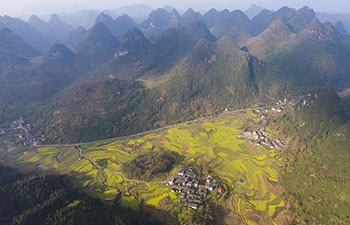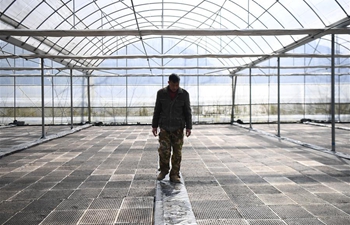LUSAKA, March 11 (Xinhua) -- The Zambian government's decision to lift a ban on export of maize and maize products has received mixed reaction from the society.
Some have welcomed the move, saying it will allow Zambia to take advantage of demands in some neighboring countries and earn some foreign exchange, others have questioned the rationale, especially at a time when drought fall armyworms are ravaging some parts of the country.
Still others feel that the government should have first waited before lifting the ban because the move may affect food security.
When announcing the lifting of the ban, Minister of Agriculture Michael Katambo said the decision was made after consultations with key stakeholders and that the ministry will apply a regulated export regime to ensure that there is no rampant exports.
Only 120,000 tons of maize and maize products will be allowed to be exported, he said.
Zambia, with an excess of 700,000 tons of maize grain stocks, is food secure, the minister said.
His views have been backed by President Edgar Lungu, who said over the weekend the country has enough maize grain, despite the current prolonged dry spells that have adversely affected maize production, especially in the southern Zambia.
The decision to allow exports, authorities say, will allow room for enough storage when new crop is harvested in the next few months.
Critics, however, insisted the government should have waited before allowing the exports of maize.
Hakainde Hichilema, the country's leading opposition figure and a farmer himself, urged the government to rescind the decision, in view of the drought in some parts of the country.
"It is only logical for the government to rescind their decision of exporting maize and mealie meal until such a time when we will be certain that our people have and will have enough food to even export the surplus," he said in a release.
Nason Msoni, another opposition leader, concurred, saying drought is a clear threat to Zambia's food security.
It would be illogical to rush into selling the maize and later source it from other countries at a very high cost, Msoni said.
Such fears have been exacerbated by the findings of government survey that over 300,000 households and about 200,000 hectares of maize fields have been affected by fall armyworms in the 2018/2019 farming season.
In a ministerial statement to parliament, the Zambian agriculture minister said the spread of the fall armyworms has affected 93 out of the country's 115 districts.












